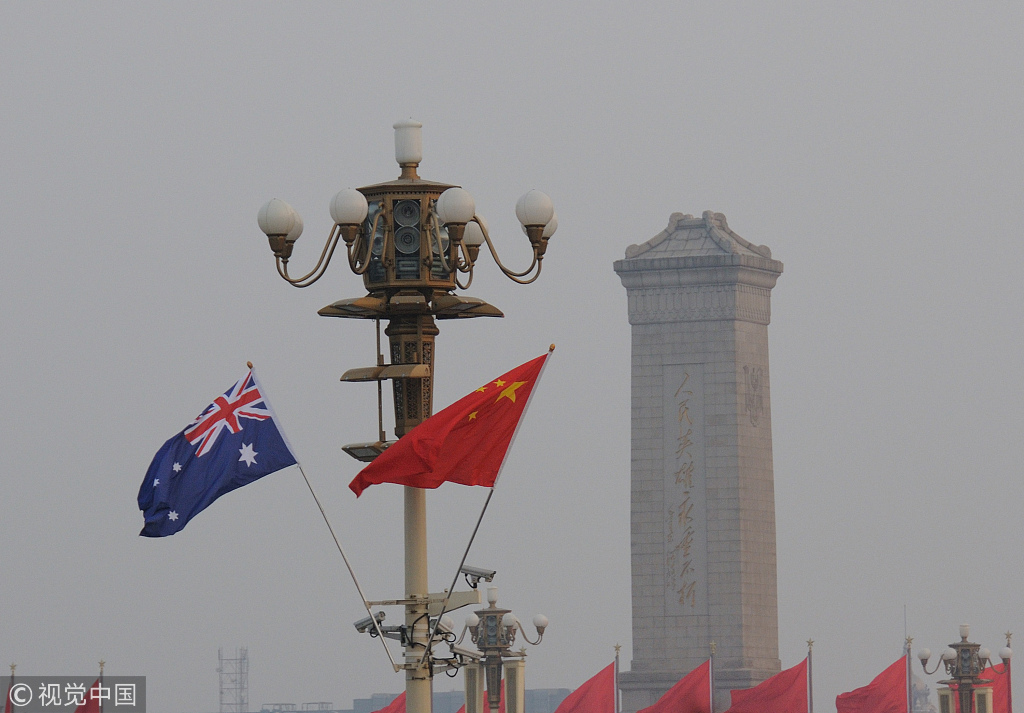Canberra should now match its sweet talk with deeds: China Daily editorial


In a welcome change of tone, high-ranking Australian politicians have begun to talk favorably about Australia's ties with China of late, and displayed a strong desire to maintain a good relationship with China. However, their sweet talking will need to be matched by suitable deeds to ensure the healthy development of bilateral cooperation.
In a speech at the University of New South Wales on Tuesday, Australian Prime Minister Malcolm Turnbull talked at length about his understanding of China and its continuing reform and opening-up and stressed the importance of Australia's ties with China, saying that his country looks forward to working with China on Belt and Road Initiative projects.
"We're committed to working with China's leaders to advance our Comprehensive Strategic Partnership, a great framework within which to advance our mutual and complementary interests," he said. He also stressed that Australia will continue to welcome students, tourists, researchers and investors from China.
Prior to Turnbull's speech, Australian Foreign Minister Julie Bishop delivered the same message when meeting with Chinese Foreign Minister Wang Yi on the sidelines of the Association of Southeast Asian Nations foreign ministers’ meeting and related meetings in Singapore.
Bishop said Australia attaches importance to ties with China and hopes to enhance mutual understanding and trust with China so as to promote all-round bilateral cooperation.
These overtures suggest that Canberra is now eying a rapprochement with Beijing after bilateral ties experienced some difficulty this year as a result of the anti-China sentiment fueled by the media and some Australian politicians' bias against Beijing, which has adversely impacted business interaction, Chinese investment in Australia, and even official communication between the two countries.
Obviously, the current undesirable picture does not cater to the interests of the two countries and peoples. China is always willing to maintain healthy and reciprocal relations with Australia as long as Australia sees China through a fair and just lens.
It has become Canberra's ingrained habit to follow Washington's lead. However, to enjoy the favors of good fortune requires changing with the times. And for Australia that means strengthening pragmatic cooperation with China.
It is hoped that the change in Canberra's rhetoric will be appropriately demonstrated to enhance trust and cooperation, so the two countries can turn a new page in their relations and focus on working together for their shared benefit and the good of the region.
































